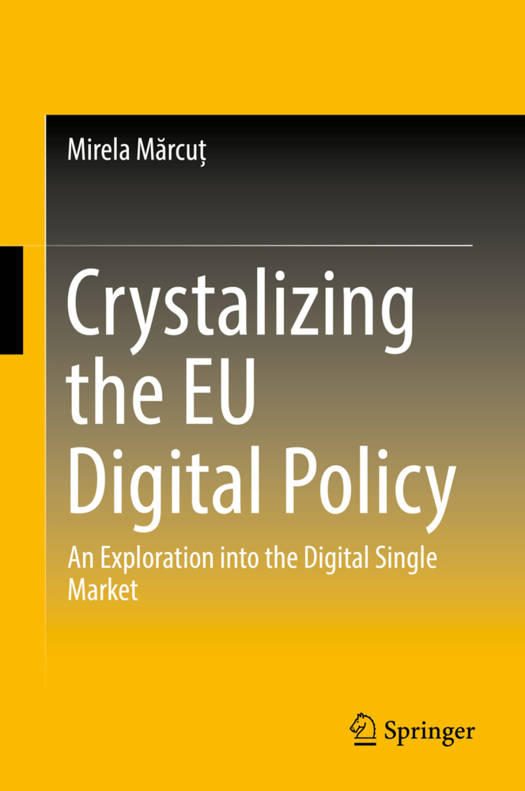
- Retrait gratuit dans votre magasin Club
- 7.000.000 titres dans notre catalogue
- Payer en toute sécurité
- Toujours un magasin près de chez vous
- Retrait gratuit dans votre magasin Club
- 7.000.000 titres dans notre catalogue
- Payer en toute sécurité
- Toujours un magasin près de chez vous
Crystalizing the EU Digital Policy
An Exploration Into the Digital Single Market
Mirela Mărcuț
Livre relié | Anglais
126,95 €
+ 253 points
Format
Description
Explores the evolution of the Digital Single Market in the European UnionExamines the ways in which the Digital Single Market mirrors the evolution of the Single Market
Provides an innovative perspective to the European integration process with emphasis on digital policies
Provides an innovative perspective to the European integration process with emphasis on digital policies
Spécifications
Parties prenantes
- Auteur(s) :
- Editeur:
Contenu
- Nombre de pages :
- 217
- Langue:
- Anglais
Caractéristiques
- EAN:
- 9783319692265
- Date de parution :
- 21-11-17
- Format:
- Livre relié
- Format numérique:
- Genaaid
- Dimensions :
- 156 mm x 234 mm
- Poids :
- 503 g







